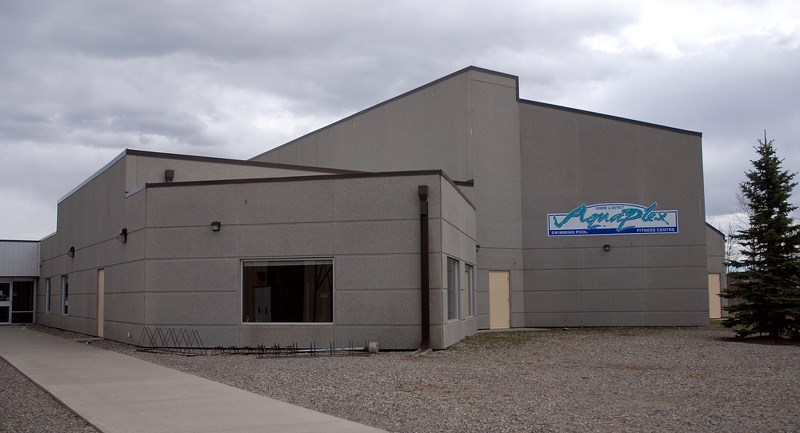At least two Sundre non-profit groups are feeling financially pinched by the Alberta government’s carbon tax.
Although the Sundre West Country Centre and the Aquaplex are for the time being able to continue providing their services to the community as usual, the organizations have been struggling to find new methods to balance their books.
And every additional dollar painstakingly raised to cover the cost of the carbon tax is one dollar less going towards maintaining the facility and providing programs to residents, said Ray Sharp, a board member of the West Country Centre, which faces a roughly $1,200 deficit over the following year as a result of the levy.
"We could have $1,200 a year more to help maintain the building,” said Sharp.
The building, which sits on municipally-owned land, is fully bought and paid for thanks to the thrifty efforts of the prior generation. However, the facility is now more than 40 years old, and ongoing maintenance costs tend to consume most of the organization’s already limited financial resources, he said.
"We get no government grants — none,” he said, adding that in the past there have been unsuccessful attempts to apply for funding programs.
While the Town of Sundre has previously contributed $1,500, he said the organization is largely self-sustaining, raising funds by renting out the facility, taking part in a casino that is only available once every three years, and charging a minimal membership fee of $10 a year to about 120 members, he said.
"Basically, we break even.”
He said the West Country Centre provides the community with an important service that helps to keep seniors active and socially connected, which in turn significantly improves their physical and emotional well-being. The range of organized activities provided includes, but is not limited to, carpet bowling, darts, canasta as well as other card games, pool, floor curling, dances and popular music jams.
While membership fees could be doubled to $20 a year, he said that would only cover the increase created directly by the carbon tax, leaving other important upgrades by the wayside. Besides, he added, the West Country Centre strives to be as inclusive as possible to all seniors who are on limited incomes. The organization is reluctant to increase fees because a hike could potentially deter some members from renewing, he said, adding group rental rates could perhaps be increased, but that this is not a preferred course of action either.
"We try to keep a lower rate to make it affordable for other groups on tight budgets.”
Ed Wicks, president of the West Country Centre, said that by raising rates, "We wouldn’t really be gaining anything, and we’d be losing members.”
Sharp said his main point of contention with the carbon tax is that private citizens receive rebates, depending on their level of income, while no exemptions or rebates are made available for struggling non-profit groups that are already on tight budgets.
"Everybody should be treated the same,” he said.
"What we mind is that we don’t get a rebate whatsoever, whereas the general public does. There’s no exception made for any non-profit organization,” he said.
"Why is a non-profit group that caters to seniors being penalized? That’s the part that doesn’t make sense to me.”
Sharp confidently expressed optimism that the West Country Centre will continue to find ways to keep its doors open, but called the carbon tax an unnecessary "financial hardship” that is "killing” non-profit groups.
However, if the carbon tax continues to increase and the group cannot secure alternative sources of revenue, "then we’re in trouble,” said Wicks.
"As of right now, we’re operating as normal and looking at ways to make up for the carbon tax.”
Meanwhile, the Aquaplex was recently forced to approve a modest rate increase of roughly five per cent across the board, said Lesley Turgeon, the facility’s manager and a former board member of the Sundre Aquatic Society, which is responsible for overseeing operations.
Although the board had anticipated a public backlash, Turgeon said she was pleasantly surprised by how supportive people have been.
"There have been no complaints from the community. We’re really impressed by their understanding,” she said, adding the increase still will not cover the shortfall created by the carbon tax.
The Aquaplex’s monthly gas bill, issued by the Town of Sundre, runs up a tab of about $3,000, of which $800 is for the carbon tax, she said.
"That’s a substantial hit for us.”
Further complicating the facility’s financial situation is the impending minimum wage increase set for October, she said, adding ways to avoid cutting back hours for the facility’s 14 employees are being considered. However, no staff cuts are anticipated, she added.
The society has "absolutely” been pursuing potential grant funds and government programs to improve energy efficiencies on, for example, lighting. But to qualify for matching grants, a group must first have funds in its own bank in place, she said.
Despite the uphill financial battle, Turgeon does not doubt the Aquaplex will stay open.
"For the time being, the society is holding its own.”
Although the path ahead won’t be an easy one, she said, "A good group can make it work. It might mean rolling up sleeves and putting in more time, but everyone’s willing to do that.”
She said the provincial government should reconsider the impact the carbon tax is having on non- and not-for-profit organizations, she said.
"Being not-for-profit is already a struggle. They should consider us being exempt.”
See a coming edition of the Round Up for a story on the impact the carbon tax is having on the Town of Sundre.
Carbon tax concerns
"What we mind is that we don't get a rebate whatsoever, whereas the general public does. There's no exception made for any non-profit organization. Why is a non-profit group that caters to seniors being penalized? That's the part that doesn't make sense to me."- Ray Sharp, Sundre West Country Centre board member



